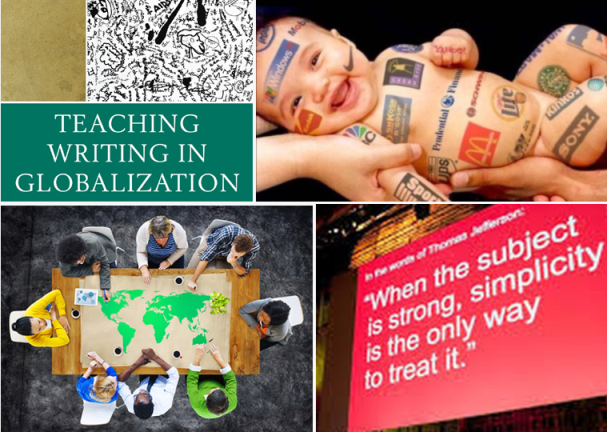When Educators Befuddle
By Jose A. Carillo My son Eduardo, who was then in third year high, got befuddled one day by a source material he wanted to use for his school report on Philippine culture. He had chanced upon it on the op-ed page of one of the leading newspapers. “Dad, I found a very impressive report on the effect of culture on globalization,” he said. “The only problem is that I can’t seem to understand what it’s saying. Can you help me? Listen:
Quote
Basically, globalization indicates a qualitative deepening of the internationalization process, strengthening the functional and weakening the territorial dimension of development.
You always told me that I’m good in English, but I just can’t seem to understand that one!”  “Let me take a look,” I said, getting the paper and quickly running through the passage. “Oh, no wonder! It’s those educators speaking again, with their imprecise and obtuse English. Well, son, what they probably meant was this: ‘Globalization is a deeper form of internationalization, one where a nation’s drive for development becomes more important than its territorial size.’ In even simpler English, a nation can be small but it can become a major world economic power.” “That certainly makes sense,” he said, “but why do these educators say it the way they do? They are writing not only for English experts but also for people like me, aren’t they? Why then use such fuzzy words as ‘qualitative deepening’ and ‘territorial dimension of development’? Why even use them in a newspaper like this?” “Son, this article was not written for you. It was probably done with the best intentions for their fellow educators and higher-ups, but somehow it landed on this newspaper without being adapted for readers like us. In any case, don’t ever think that anyone should use an ‘English for experts’ only. Linguists perhaps, but these educators, no. They should have used English that newspaper readers like us can understand.” “So why publish at all if they couldn’t be understood anyway?” “Well, son, in academic circles there’s a jaded saying: ‘Publish or perish!’ You must publish your work no matter how trivial or badly written, or you don’t count for anything. You are dead fish. So in some countries—ours included— there has evolved something called vanity publishing. It’s a growing industry that aims to meet this need—and also to massage some big people’s egos. Every now and then, of course, some good ideas with social value get across somehow through this mode, but more often they don’t, as in this case.” “I see. But, Dad, here’s a great passage that seems to be clear enough for my school report. Listen:
Quote
The Philippine national culture is rooted in the people, their land, and their experience. From these develop their way of seeing and living, their systems of thought and values, their customs and traditions, their crafts and arts, their problems and their triumphs, that which they dream of and aspire for, and ultimately the national culture that they recognize in consensus and commitment.
Impressive! Do you think I can use it?” “I’m not too sure, son. That sounds suspiciously trivial, more like a piled up definition of culture in general, but the authors just seem to have made it look like it was unique to Philippine culture in particular. You can apply the same thing to Kenya and Tobago and Palau and it will still be correct. In their own circles it’s called ‘rank tautology,’ a needless repetition of an idea in different words. In fact, they could have reduced all of those 62 words into the words ‘Philippine culture’ and nothing would have been lost.” “Tough luck then! Now I’ll have to look for some other source material for my report,” he said, almost wailing. “But wait, Dad, here’s something that I’m sure will impress my teacher. Listen:
Quote
The third posits that education paves the way towards the designated type of society—which, to our belief, is a modern and humane society characterized by a comfortable quality of life in a peaceful, global and multicultural connection demonstrating adaptability and flexibility of a people without necessarily vitiating the core values that they hold or which define their culture.
Isn’t it great English? I’ll probably get a 95 for my paper if I used it!” “Hold it, son, hold it! That sentence may sound nice but it actually says almost nothing. No new insight whatsoever. Notice how all of the 59 words are straining and groaning to define what needs no definition, because everybody already knows it deeply in his heart: that society needs good education to prosper. Don’t tell me that you still don’t know that!” “You’re right, dad,” he said dolefully, “of course I already know that. But aargh! I guess I’ll just have to look elsewhere for something more substantial and readable for my school report.” (2004) This essay in conversation form, which first appeared in my English-usage column in The Manila Times in 2004 and subsequently formed Chapter 142 of my book Give Your English the Winning Edge, is part of a collection of my personal essays from 2003 to 2007. I’ll be running one essay in conversation form from the selection every Wednesday starting January 11, 2017 until February 15, 2017. |
Rabu, 11 April 2018
When Educators Befuddle By Jose A. Carillo
Langganan:
Posting Komentar (Atom)
Tidak ada komentar:
Posting Komentar